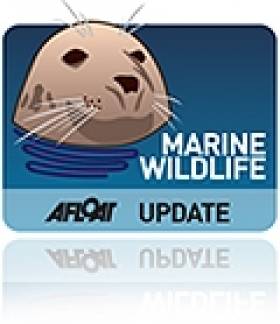Displaying items by tag: Algal Bloom
Algal Bloom Killing Fish, Shellfish Off West Coast
#MARINE WILDLIFE - An algal bloom off the west coast of Ireland is responsible for significant fish and shellfish kills from Galway to Donegal, according to the Marine Institute.
As The Irish Times reports, as much as 80% of stocks have been affected on Donegal oyster farms, and the bloom is also impacting negatively on angling tourism in the west and northwest.
The algae responsible, karenia mikimotai, occurs naturally in Ireland's coastal waters during the summer months and his harmless to humans, but contains a "toxic irritant" that damages the gills of fish, shellfish and other marine species.
Low-level samples were first detected in May but in the last two weeks it has grown into a dense bloom from Donegal to Mayo, with high levels now being recorded in Galway Bay, according to the Marine Institute's Joe Silke.
"In Donegal the bloom was so dense that there were many reports of discoloured red or brown water in some areas and several areas have reported dead marine life washing up on the shoreline, requiring local authorities to close certain beaches,” he said.
"The bloom affects species that live on or near the sea bed so we are seeing flatfish, lugworms and some shellfish getting washed up on the beaches."
The image evokes memories of the notorious 'red tide' that killed wild fish and shellfish along the west coast in 2005.
Meanwhile, the Marine Insitute said there are "some indications" that the bloom may be moving back out to sea, as observed in the latest satellite images and modelling data.
"However, cell counts of samples analysed in the Marine Institute... show that the bloom is still of the same density in the Donegal and Sligo regions as it was last week."






























































